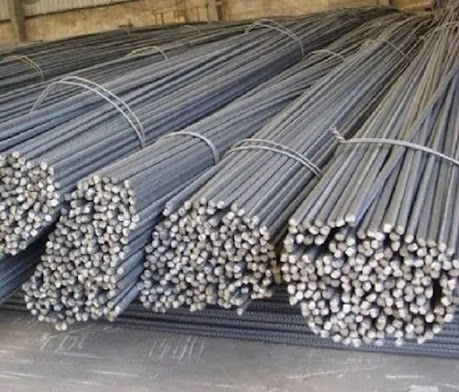Seismic zones pose unique challenges for construction, requiring buildings and structures to withstand the powerful forces unleashed during earthquakes. In recent years, TMT or Thermo-Mechanically Treated steel rods have emerged as a game-changer in enhancing the structural resilience of buildings in seismic zones.
We embark on a mission to explore the significant role of Top TMT Sarias in Rohtak in seismic-resistant construction, highlighting their properties, applications, and benefits in creating safer structures that can withstand seismic events.
Understanding Seismic Zones and their Challenges:
- Defining seismic zones and the potential risks associated with earthquakes.
- Exploring the different types of seismic forces and their impact on structures.
- Discussing the importance of designing structures to withstand seismic events.
TMT Steel Rods: The Ideal Reinforcement for Seismic
Zones:
- Introducing TMT Saria Bar in Rohtak and its unique properties
that make it suitable for seismic-resistant construction.
- Highlighting the high tensile strength and ductility of TMT steel rods, which help absorb seismic forces.
- Discussing how TMT steel rods exhibit superior elongation and can withstand cyclic loading during earthquakes.
Seismic Design Principles and TMT Steel Rods:
- Exploring the seismic design principles and codes specific to structures in seismic zones.
- Discussing the role of Top TMT Sarias in Rohtak in
meeting the requirements for seismic-resistant design.
- Highlighting how TMT steel rods enhance the structural integrity and durability of buildings in high-risk areas.
- Discussing the importance of reinforcing concrete structures in seismic zones.
- Exploring the applications of TMT steel rods in reinforcing building elements such as columns, beams, and foundations.
- Highlighting how Shri Rathi Group TMT steel rods increase the flexural and shear strength of concrete members, improving their seismic performance.
Ductility and Energy Dissipation:
- Explaining the concept of ductility and its significance in seismic-resistant design.
- Discussing how a TMT Saria Bar in Rohtak exhibits
excellent ductility, allowing structures to undergo controlled deformation
during earthquakes.
- Highlighting how TMT steel rods help dissipate seismic energy, reducing the potential for structural damage.
Case Studies: Real-Life Examples of TMT Steel Rods
in Seismic Zones:
- Showcasing successful projects where TMT steel rods played a pivotal role in enhancing seismic resilience.
- Highlighting specific design considerations, reinforcement techniques, and the resulting performance of structures during seismic events.
The Importance of Construction Practices and
Quality Control:
- Discussing the importance of proper construction
practices in ensuring the effectiveness of TMT Saria Bar in Rohtak reinforcement.
- Exploring quality control measures for TMT steel rods, including procurement, handling, placement, and inspection.
- Highlighting the role of trained professionals in implementing best practices to maximize the seismic performance of structures.
Future Trends and Innovations:
- Discussing ongoing research and development in the field of TMT steel rods for seismic-resistant construction.
- Exploring emerging trends, such as the use of advanced materials and innovative reinforcement techniques.
- Highlighting the potential for further enhancements in
the seismic performance of structures using Top TMT Sarias in Rohtak.
Beyond Earthquakes: Shri Rasthi Group TMT Steel Rods and the Future of
Seismic Engineering
TMT steel rods from Shri Rathi Group have become a critical component in
seismic-resistant construction, significantly enhancing the resilience of
structures in high-risk areas. Their superior strength, ductility, and energy
dissipation capabilities make them an ideal choice for reinforcing buildings in
seismic zones.
By adopting proper design principles, construction practices, and quality control measures, engineers and construction professionals can leverage the benefits of TMT Saria Bar in Rohtak to create safer and more resilient structures that can withstand the forces of earthquakes.







No comments:
Post a Comment